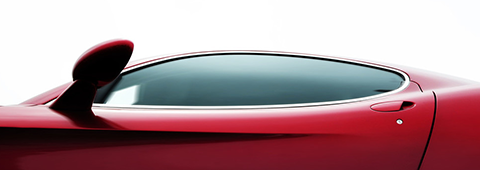
Aluminium: metal for good
Strong, lightweight and highly recyclable, aluminium has many uses in modern life. It’s a key ingredient in everything from buildings and transportation to household appliances and food packaging.
 Aluminium is a key ingredient in everything from buildings and transportation to household appliances and food packaging.
Aluminium is a key ingredient in everything from buildings and transportation to household appliances and food packaging.
Low-carbon technology
Building on more than a century of experience and expertise, Rio Tinto is a global leader in the aluminium industry. The business includes high-quality bauxite mines, large-scale alumina refineries, and some of the world’s lowest-cost, most technologically-advanced aluminium smelters.
In primary aluminium, Rio Tinto’s power supply is the cleanest in the industry. It is 97 per cent carbon-free and mainly self-generated by hydropower facilities.
At Rio Tinto’s R&D centres in Canada, France and Australia, teams work on raw materials and smelting processes, development of alloys, production of value added products, and analytical and environmental technologies.
The company’s hydropower portfolio, and its AP TechnologyTM for smelting, give Rio Tinto the lowest energy and carbon footprint in the aluminium industry.

In the driving seat
Due to its light weight, it requires less energy to manufacture and transport products made from aluminium than most other metals. In a car, replacing heavier materials with one kilogram of aluminium can save a net 20 kilograms of carbon dioxide (CO2) emissions over the vehicle’s life.
 Automakers are increasingly turning to aluminium to reduce vehicle weight
Automakers are increasingly turning to aluminium to reduce vehicle weight
As governments set ever-stricter limits for fuel economy and CO2 emissions, and carmakers push the boundaries of design, automakers are turning to aluminium not only to reduce vehicle weight, but to improve performance.
Rio Tinto has worked closely with customers in the auto industry to enable aluminium-intensive designs to become a reality, to help improve their processes, and develop customised, high-performance aluminium alloys.
 Aluminium’s light weight and durability also makes it ideal for the construction of aeroplanes.
Aluminium’s light weight and durability also makes it ideal for the construction of aeroplanes.
The company’s low CO2 aluminium helps its customers to not only improve their vehicles’ fuel economy but also to minimise their supply chain’s carbon footprint.
Rio Tinto’s Aluminium business’s largely carbon-free energy combined with its advanced AP TechnologyTM has also made it possible for it to launch the world’s first certified low CO2 aluminium, RenewAlTM. It’s certified to contain no more than four tonnes of CO2 per tonne of aluminium produced – nearly one-third the industry average.
Find out more.


